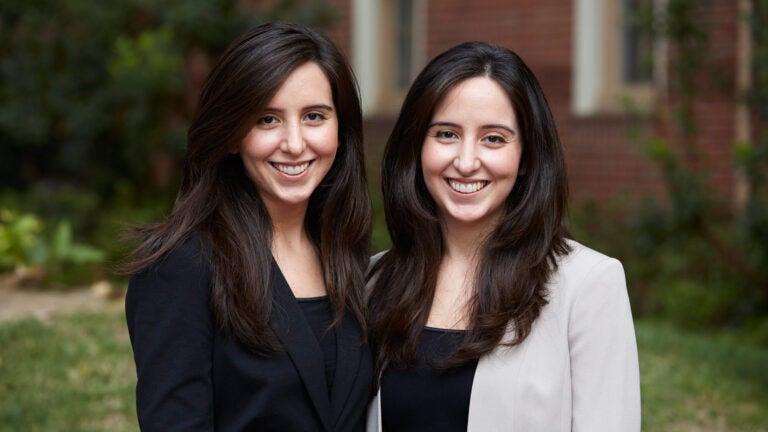
Identical twins Sarin and Talin Haroutounian (Photo/Teri Weber)
What do five sets of siblings have in common?
They’re all students at USC Gould, including one set of identical twins
While she was dean of admissions at the USC Gould School of Law, Chloe Reid noticed something unusual as she reviewed the names of incoming students before the start of the fall 2015 semester.
Oberle, Topete, Davtian … the names seemed oddly familiar.
As she investigated, Reid realized they seemed familiar because these admits had older siblings already enrolled at the school. Digging deeper, she then realized the school actually had five sets of siblings — including one pair of identical twins — simultaneously enrolled.
Unusual indeed.
“It’s amazing because it just happened by chance. I don’t think any of the [first-year law students] with older siblings at Gould had indicated they had a sibling in the program in their applications,” Reid said. “So there were no special allowances to admit them just because they had a brother or sister already here.”
Perhaps no special allowances, but it’s probably not surprising that the older siblings influenced their younger brother or sister to join them at USC. Some had been accepted to law schools at Columbia University, the University of Chicago, the University of California, Berkeley and UCLA, but they chose USC Gould instead, based on their sibling’s experience.
Bruins turned Trojans
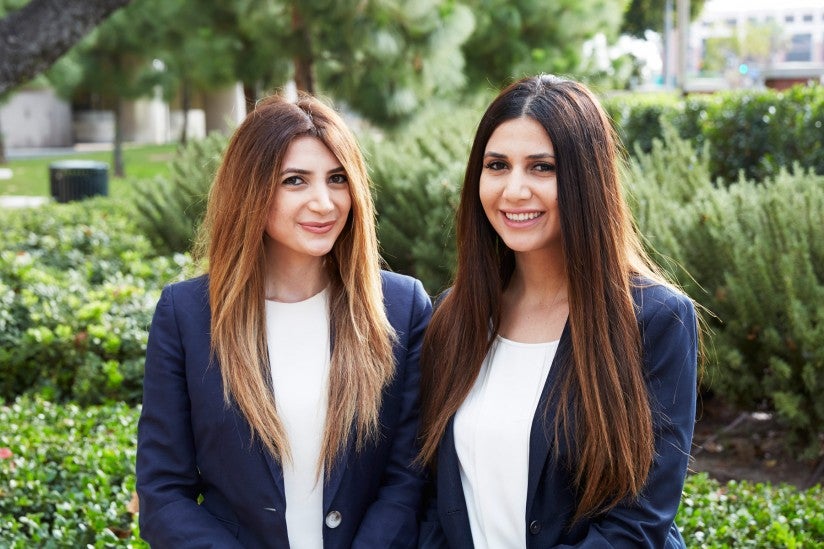
That was the case with Ani and Anoush Davtian.
Since they both attended UCLA as undergrads, the Davtians now identify as “Brojans” (Bruins who are now USC Trojans). Older sister Anoush, now a third-year student and editor-in-chief of the Southern California Law Review, was so enthusiastic about USC Gould, recalls Ani, that “I thought it was too good to be true.”
“I feel like I got a sneak peek at the school through Anoush’s experience here,” Ani said. “It’s different than what you expect from law school. There’s an ability to connect with people, and the classes are smaller. I was ecstatic when I found out I got in.”
Magical talisman?
That’s how it worked for first-year law student Krista Topete. USC Gould became her dream school after hearing older sister Roxanna (Roxy), now a third-year law student, rave about the classroom environment and collegial atmosphere.
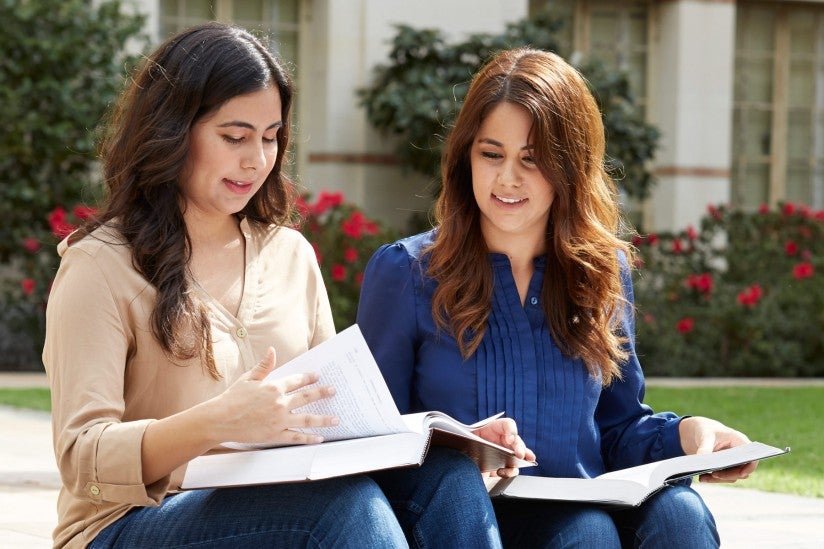
“I even had a USC pen I used when I was studying for the LSATs,” Krista said.
The talisman must have worked its magic, as Krista, an ABA Legal Opportunity Scholarship winner, was accepted by both USC and Columbia law schools, ultimately choosing USC.
“That’s where my heart was telling me to go,” she said.
For Roxy, the fact that Krista chose USC Gould “says a lot about the school.” Both Roxy and Krista grew up in Northern California’s Vacaville and are the first in their family to attend college.
Perhaps the biggest benefit for Krista is that, thanks to Roxy blazing the law school trail ahead of her, now their parents understand the demands of earning a JD. In other words: “My parents know why I’m not calling them all the time,” Krista said with a laugh.
No woes for O.C. bros
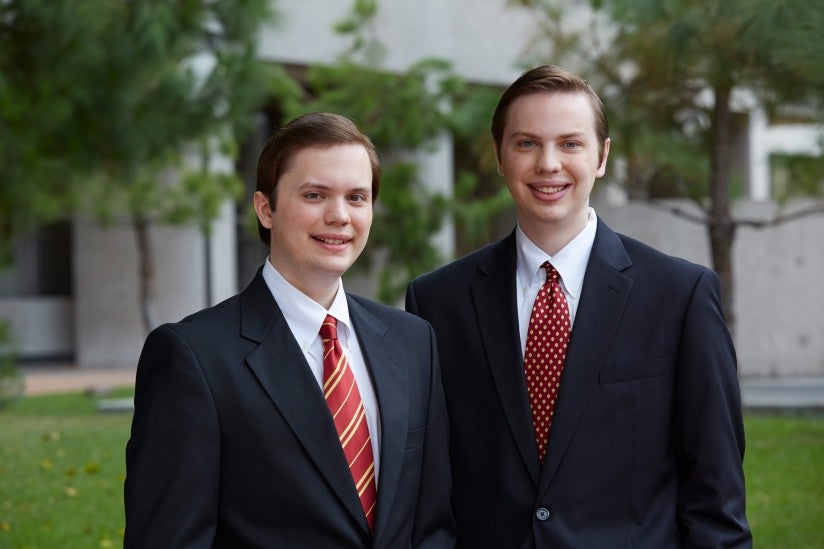
First-year law student Daniel Oberle benefited from having an older sibling in law school before he applied. Elder brother Bryan, a third-year law student, guided him through the law school application process, and he strongly recommended that Daniel choose USC Gould over UCLA, Berkeley and Cornell University.
Daniel earned his BA in political science with a minor in philosophy in three years at UCLA, but he ultimately chose USC, crediting Bryan — a Double Trojan and a USC Trustee Scholar — for influencing his decision to join the Trojan Family. The two Orange County natives now live together in Los Angeles and plan careers in corporate law.
Bryan, who completed his BA in political science and BA in philosophy, politics and law — a special interdisciplinary major at the USC Dornsife College of Letters, Arts and Sciences — in three years, now counsels his brother on how to effectively spend his study time.
Double trouble
For identical twins Sarin and Talin Haroutounian, who live at their family’s home near Los Angeles, the biggest advantage to simultaneously experiencing law school is the built-in moral support.
“You have someone who’s going through the same difficulties with you — someone to confide in, who understands how tough it is when the first year takes up your life,” Talin said.
The Haroutounians are so similar that they earned identical SAT and LSAT scores, attended the University of California, San Diego together and even co-ran a business before applying to law schools. They completed their first year at USC Gould before deciding to sell their business. Now they’re planning their commute together as they both landed associate positions at Proskauer Rose, which they’ll begin once they complete their JDs.
Friendly rivals
There’s a sense of friendly competition between the Gorini brothers, who did not receive identical LSAT scores.
“I’m happy that my younger brother Mike got a slightly higher LSAT score,” Andrew said. “It was by one point, but who’s keeping score? Seriously, there’s no animosity.”
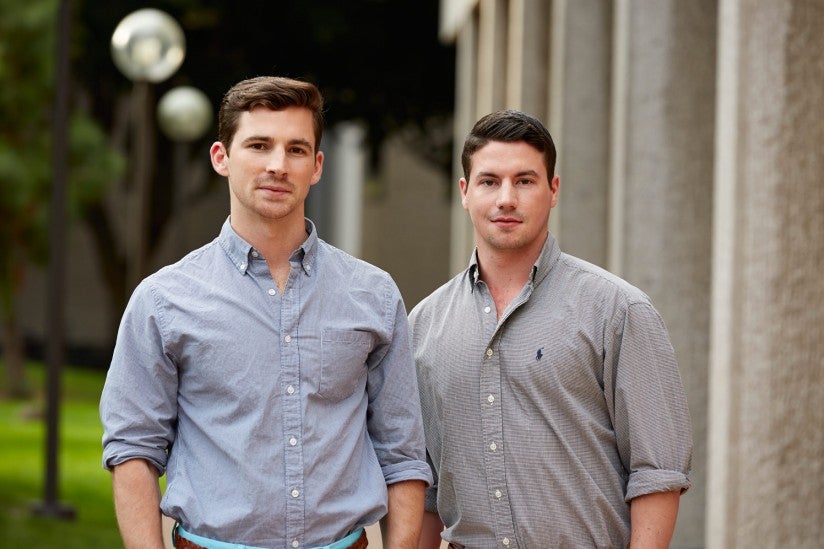
While they’re not twins, the Gorini brothers are both first-year law students, as Andrew took some time to work for the International Rescue Committee in hometown San Jose after graduating from Gonzaga University and before applying to law schools.
In this case, Mike influenced his older brother’s decision to study at USC Gould.
“I knew I wanted to stay in California and that USC has a great alumni program,” Mike said. Ultimately, Mike’s decision “tipped the scales” for Andrew, who reports that their parents are happy to have them both on the west coast and close to their home in San Jose.
Reid, now USC Gould’s director of special projects for development and graduate relations, attributes the school’s popularity among siblings to the school’s “family feel.”
“Fierce competition and rivalry aren’t the norm here. People here want to take care of each other,” she said.
Talin Haroutounian agrees.
“I can’t imagine being treated better than we are here,” she said. “I walk down the hall and everyone knows me. I love my law school, and I don’t think many other students at other law schools would say that.”
